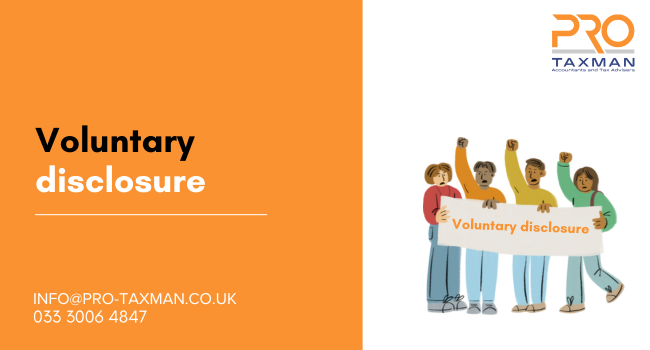Voluntary disclosure involves individuals or businesses coming forward to inform HMRC of any errors or omissions in their tax returns, unpaid taxes or any other irregularities, before HMRC discovers them through its own investigations. In recent years HMRC has used a series of campaigns and settlement/disclosure opportunities aimed at particular sections of the taxpaying public to encourage taxpayers to come forward and declare any missing information by offering favourable penalties. Taxpayers who cannot use these open campaigns can still disclose voluntarily by using the Digital Disclosure Service (DDS), the advantage being lower tax-geared penalties than if HMRC had started the investigation. Often HMRC will not investigate voluntary disclosures as deeply than if it opens a case itself.
Digital Disclosure Service
The DDS is an online platform allowing individuals and businesses to disclose any tax irregularities or errors that have not already been reported to HMRC. An online interest and penalty calculator is available for determining the interest and penalties due on any underdeclared tax liability for up to the previous 20 years. The taxpayer will need to use this tool to include these figures when making the disclosure.
The penalty will be a percentage of the additional amount of tax owed, the percentage depending upon the reason for the non-disclosure. The headings are that the error was made:
- despite taking reasonable care (no penalty)
- due to carelessness (0% – 30%)
- because of deliberate non-declaration (20% – 70%)
- where the lost tax involves an offshore matter or transfer which makes the loss of tax significantly harder for HMRC to identify -‘deliberate and concealed’ (30% –100%)
HMRC states that if reasonable care has been taken in completing returns but the right amount of tax has not been declared, no penalties will be levied. However, HMRC counters this stance with the comment ‘We do not expect many people’s circumstances to fall within this category’.
Although the declaration can go back 20 years, in practice, should the non-disclosure be deemed to have been non-deliberate, HMRC will only expect a maximum of four years if registration for Self Assessment was made by the appropriate deadline, and care was taken to ensure the tax affairs were correct but the amount paid was insufficient. The number of years is six years for ‘carelessness’ and 20 years if a taxpayer ‘deliberately misled HMRC about this income’. Current and future tax affairs must be kept up to date. Should the non-declaration not be deliberate but exceed six years, HMRC will invite a taxpayer to make a ‘voluntary restitution’ of tax payment. However, this cannot be enforced as the liability does not exist. If, for some reason, the taxpayer does decide to pay the tax for the out-of-date years, no penalties or interest can be charged.
Should the taxpayer have taken more than three years to correct the non-compliance, full reductions for disclosure will not be given (with HMRC restricting the maximum statutory penalty reduction by 10 percentage points).
Process of declaration
Completion of an online form notifies HMRC that the taxpayer wishes to make a declaration. Following submission of this form, HMRC will issue a reference number to be shown on the DDS declaration form. The time limit for submission of the DDS form and date of payment of outstanding tax is 90 days after the date of HMRC’s acknowledgement of the notification/filing. Not making this deadline may make the taxpayer liable to a formal investigation. However, more time can be requested if it is impossible to gather all the information and make the disclosure within 90 days.
The DDS online platform includes a page where the amount of interest and penalties the taxpayer has calculated is declared and also a declaration to confirm that the disclosure is correct and complete. As part of the disclosure, the taxpayer makes an offer to pay the outstanding tax. The offer and HMRC’s acceptance letter creates a legally binding contract.
Need professional accounting service or accounting advice? Contact us to book a 15-min Free Consultation with us today.
To find out more please follow us on Facebook, Twitter, or LinkedIn. Feel free to contact us on 0333 006 4847 or request a call back by texting 075 6464 7474

